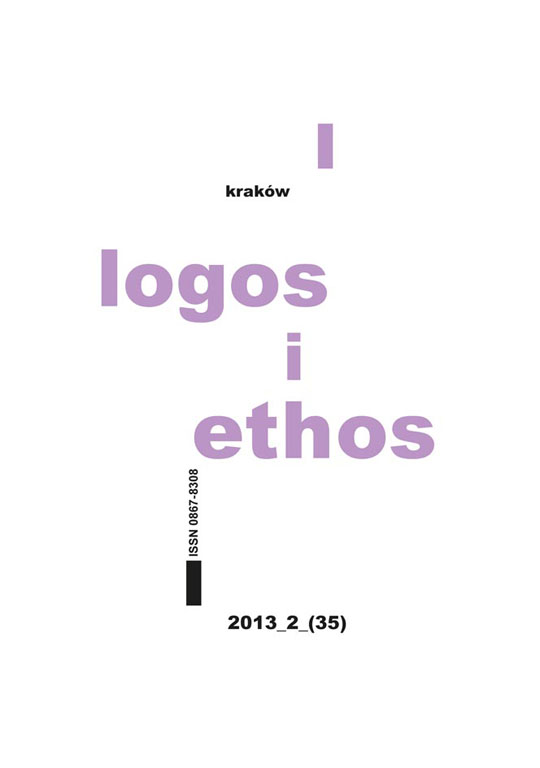Kontemplacja a poznanie w filozofii Plotyna
DOI:
https://doi.org/10.15633/lie.162Słowa kluczowe:
Plotinus, contemplation, knowledge, metaphysics, mysticismAbstrakt
Plotinus’ mysticism is a controversial field of study. While some scholars see in it the essential aspect of his system, others consider it to be of little importance. Interpretations of the “mystical union” with the One also differ from monistic to theistic, and the debate seems to be far from an ultimate conclusions. This paper is an attempt to find a different approach to this problem, namely, by examining relationships between contemplation (which appears to be a more useful term than “mystical experience”) and knowledge in the system of Plotinus. It is suggested that the two main types of contemplation are “noetic” contemplation, which is a paradigm for knowledge and derives from Plato’s and Aristotle’s account of noesis, and “hypernoetic” contemplation which is a borderline phenomenon for ancient philosophy, because it is a state of beatifying unknowing. While noetic contemplation is more typical of Western philosophy, hypernoetic contemplation is a phenomenon similar to what Eastern mystical religions strive for. Even though Plotinus’ philosophy seems to incorporate an experience that is central to the Eastern thought, the author of the Enneads remains a profoundly Western thinker, trying to put the state of contemplative unknowing in the context of intellectual, rational pursuit of truth and happiness.
Pobrania
Opublikowane
Numer
Dział
Licencja
Prawa autorskie (c) 2013 Mateusz Stróżyński

Utwór dostępny jest na licencji Creative Commons Uznanie autorstwa 4.0 Międzynarodowe.
Autorzy publikujący w czasopiśmie udzielają jego wydawcy zgody o następującej treści:
- Autor zachowuje autorskie prawa majątkowe do utworu, a jednocześnie udziela wydawcy czasopisma zgody na jego pierwszą publikację w wersji drukowanej i wersji online na licencji Creative Commons Uznanie autorstwa 4.0 Międzynarodowe oraz zgody na wykonywanie opracowań, w tym przekładów.
- Autor ma możliwość udzielania zgody niewyłącznej na opublikowanie utworu w wersji, która ukazała się w czasopiśmie (np. zamieszczenia go w repozytorium instytucjonalnym lub opublikowania w książce), wraz z informacją o jego pierwszej publikacji w czasopiśmie.
- Autor może umieścić swój utwór online (np. w repozytorium instytucjonalnym lub na swojej stronie internetowej) jeszcze przed zgłoszeniem utworu do czasopisma.

